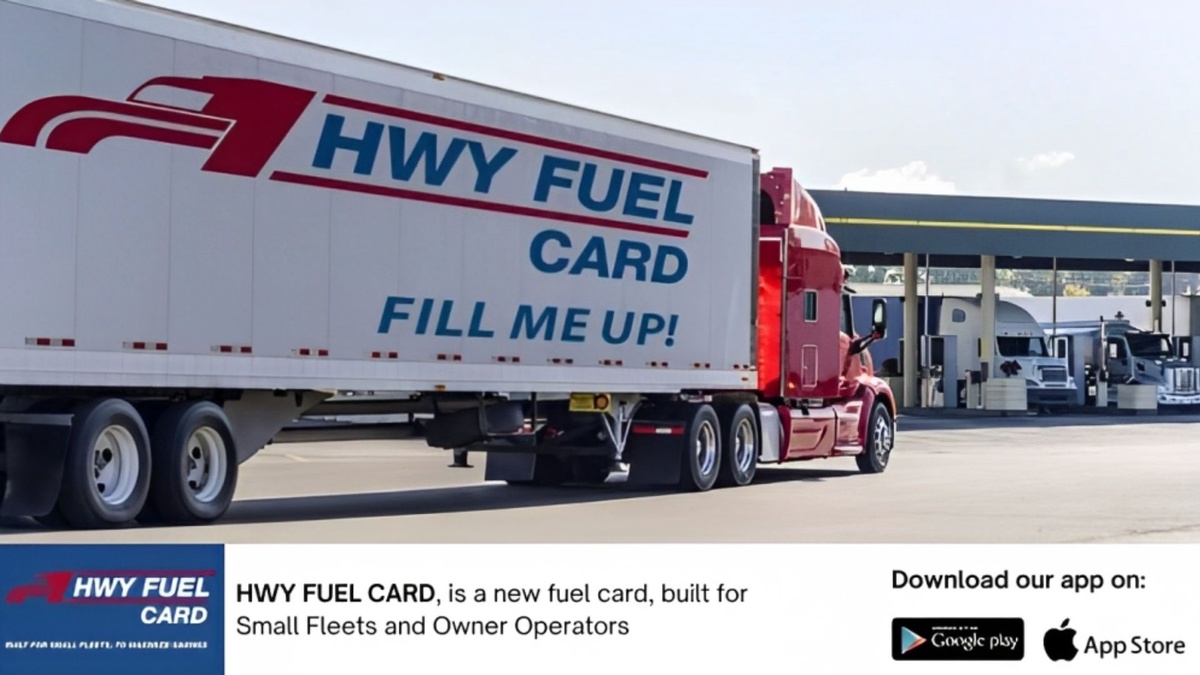Fuel costs are a significant burden for businesses of all sizes, particularly those that rely on fleets of vehicles. For owner-operators, fuel can be the single biggest expense, while for fleets, it's often second only to driver payroll. Finding ways to manage and reduce fuel spending is crucial for maintaining profitability.
This is where fuel cards for business come in. These specialized cards offer a range of benefits designed to streamline fuel purchases, improve expense management, and potentially generate significant cost savings.
Understanding Fuel Cards
A fuel card is a payment method specifically designed for business use at gas stations and truck stops. Unlike traditional credit cards, fuel cards offer features and functionalities tailored to fleet management and expense control.
Here's a breakdown of some key characteristics of fuel cards for business:
- Network Acceptance: Fuel cards can be accepted at a variety of gas stations and truck stops, depending on the specific card program. Network options include national brands, regional chains, or independent stations.
- Discounted Rates: Many fuel card programs offer per-gallon discounts on fuel purchases compared to cash or credit card prices. These discounts can be negotiated based on the total gallon volume purchased by the business.
- Expense Management Tools: Fuel cards provide detailed transaction data, allowing businesses to track fuel spending by driver, vehicle, or route. This data can be used to identify areas for cost reduction and improve fleet efficiency.
- Security Features: Fuel cards typically come with enhanced security features, such as PIN verification and spending limits, to minimize the risk of unauthorized purchases.
- Convenience: Fuel cards eliminate the need for drivers to use personal credit cards or carry cash for fuel purchases. This streamlines the refueling process and reduces administrative tasks.
Fuel Cards: Ideal Applications
Fuel cards are a valuable tool for a range of businesses that rely on vehicles for their operations. Here are some examples:
- Delivery and Transportation Companies: Delivery trucks, taxis, and other commercial vehicles can benefit significantly from fuel card discounts and streamlined expense tracking.
- Construction Companies: Construction fleets often require refueling at various locations, and fuel cards provide network flexibility and centralized billing.
- Sales Teams: Sales representatives who travel by car can use fuel cards to simplify expense reporting and potentially gain discounts on fuel purchases.
- Landscaping and Property Maintenance: Landscaping companies and property maintenance businesses with service vehicles can leverage fuel cards for cost control and improved efficiency.
Beyond Cost Savings: Additional Benefits
While fuel cost reduction is a primary advantage, fuel cards offer additional benefits that contribute to overall business success:
- Improved Cash Flow: Many fuel card programs allow for consolidated billing, simplifying the payment process and potentially improving cash flow management.
- Reduced Administrative Burden: Fuel cards eliminate the need for drivers to submit receipts and expense reports, reducing administrative tasks for both drivers and accounting departments.
- Enhanced Security: Fuel cards offer greater security compared to cash or credit cards, minimizing the risk of fraud or misuse.
- Data-Driven Insights: Transaction data from fuel cards can be used to gain valuable insights into fleet activity and optimize fuel consumption patterns.
Choosing the Right Fuel Card Program
With a variety of fuel card providers offering different features and benefits, selecting the right program is crucial. Here are some key factors to consider:
- Network Acceptance: Ensure the card is accepted at stations convenient for your drivers' routes.
- Discount Programs: Look for programs with competitive per-gallon discounts or other savings opportunities.
- Fees: Compare annual fees, transaction fees, and any other potential charges associated with the program.
- Reporting and Management Tools: Evaluate the available tools for tracking fuel spending, setting spending limits, and generating reports.
- Customer Service: Consider the provider's reputation for customer service and their ability to address any issues that may arise.
By carefully evaluating these factors and considering your specific business needs, you can select fuel cards for a business program that delivers significant cost savings, operational efficiency, and valuable data insights.


No comments yet